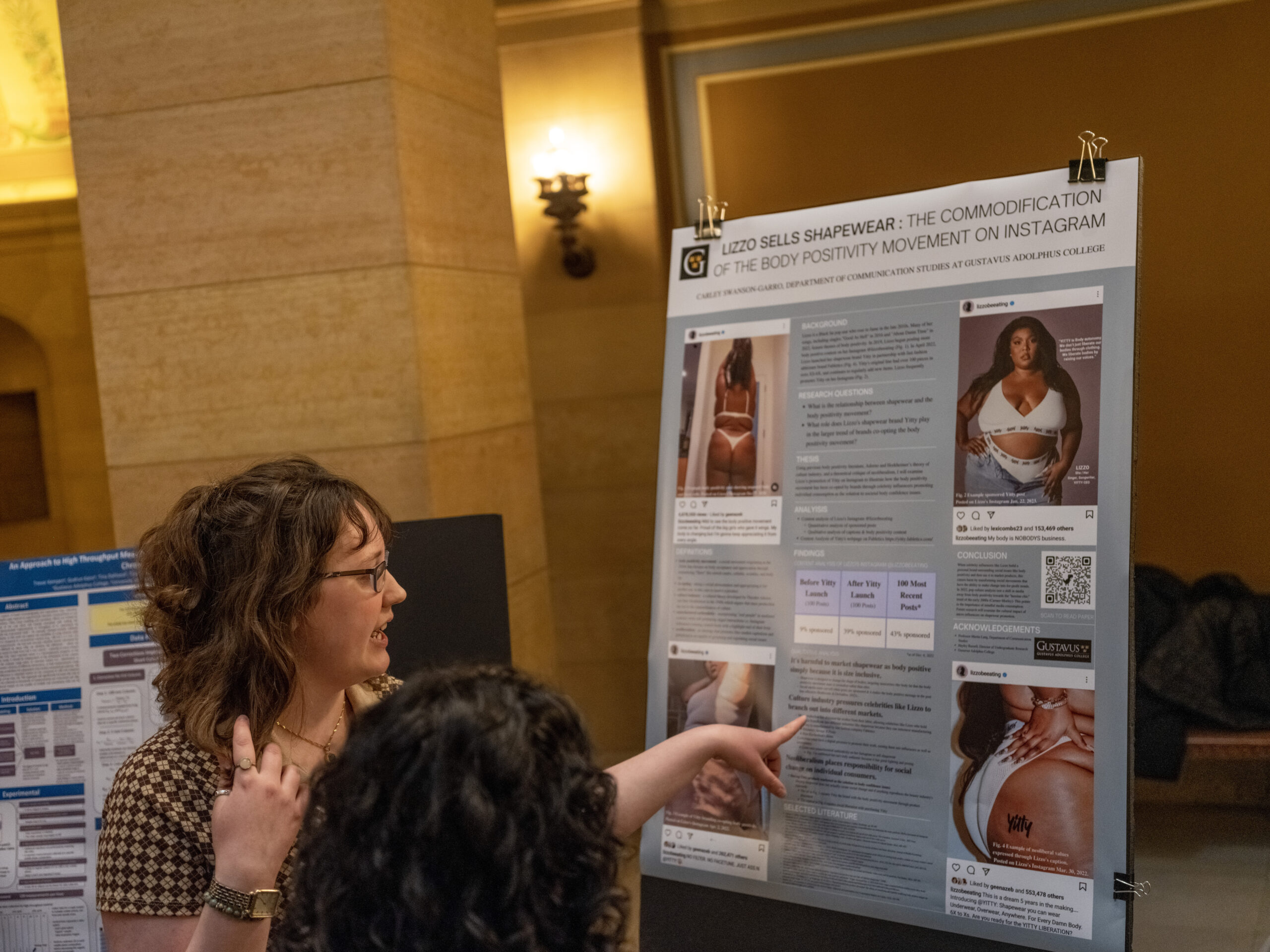“But will I ever use this in my job?” is a question students have asked for as long as there have been post-graduate career paths. On Feb. 15, two Gustavus students showcased research projects at the Minnesota State Capitol with components they’ll definitely deploy in their professional lives.
Carley Swanson-Garro ’23 and Haley Jostes ’23 represented Gustavus at the 2023 Scholars at the Capitol event, which gives undergrads from Minnesota private colleges the opportunity to share their research with the public and their elected representatives. The students learned of the opportunity through the College’s Undergraduate Research Office, and the primary caveat, given the setting at the Capitol, was that each project have a public interest component.
Jostes, a biochemistry and molecular biology and chemistry major, demonstrated her efforts to simulate liquid chromatography separations in modeling, which are often limited by datasets that are too small because of the costs of measuring these compounds. The project explored the possibility of using small-volume columns instead of conventional columns for retention measurements, which could save time and money and help create reusable databases in a variety of different fields.

These processes are widely used in sectors such as forensics and pharmaceutical development, and the welcome challenge for Jostes, who’s presented her work in the past to roomfuls of scientists, was to explain the project to the laypeople at the Scholars event. “I’ve presented my research quite a bit, but always at technical or scientific conferences. This was the first presentation I’ve done to more of the general public, so that was different because they don’t know the technical jargon,” she said. “Basically, this is a separation technique that’s used in a wide variety of fields, so it’s very applicable to everyone, but in an indirect way.”
The inspiration for Swanson-Garro, an English and communication studies major, arose from a paper she’d written for a communication class called Media, Culture, Power. The paper is about how the body positivity movement intersects with the recording artist Lizzo’s shapewear brand. Swanson-Garro learned of the Capitol event from her professors and the Undergraduate Research Office, which also pointed her toward another presentation opportunity at Harvard University, where she presented a different paper last year. “The Office is really good at forwarding opportunities to students, and both of my advisors reached out to me as well, so there’s a lot of communication between the office and professors and students,” she said.
She added that the actual findings of the Lizzo project were somewhat “disheartening” because of the way Lizzo’s Instagram presence blurs the line between promoting and commercializing the movement. “A lot of research says social movements are less effective when people are marketing something to you with them,” Swanson-Garro said. “It’s interesting how shapewear is marketed as being body positive, but really it isn’t because it’s supposed to change your body. So there’s this dichotomy between marketing products to ‘solve’ body confidence issues versus the movement itself, which is more focused on people’s actual bodies and representation in media and culture.”
Both students will use the knowledge gleaned from these projects to inform their eventual career choices. Jostes is currently scouting biochemistry PhD programs, and Swanson-Garro is applying for post-graduate positions in marketing and writing. They each noted how the public focus of the Scholars event gave them another critical experiential tool to use later. “It’s really valuable to be able to explain what you do in a more general way because it makes the research more accessible to people,” Jostes said. “A lot of your future funding will come from resources who don’t necessarily understand 100 percent of what you do, so being able to make that more accessible helps with funding and helps people care about what you’re doing.”

Leave a Reply